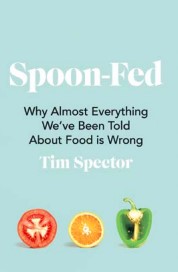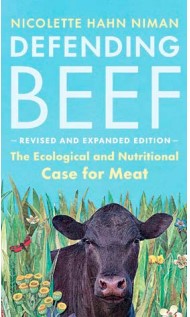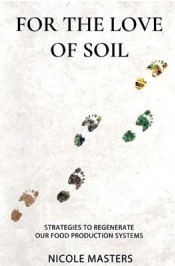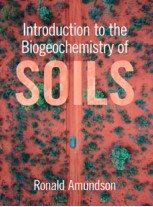If you are like us, then you don’t know where to start when it comes to other reading apart from farming magazines. However, there is so much information out there that can help us understand our businesses, farm better and understand the position of non-farmers. We have listed a few more books you might find interesting, challenge the way you currently think and help you farm better.

Spoon-Fed
Is breakfast really the most important meal of the day? Is there any point in counting calories? Is there any evidence that coffee is bad for us? Through his pioneering research, Professor Tim Spector busts these and many other myths about food. Spoon-Fed explores the scandalous lack of good science behind many diet plans, official recommendations and miracle cures, and encourages us to rethink our whole relationship with food – not just for our health as individuals, but for the future of the planet.

Defending Beef: The Ecological and Nutritional Case for Meat, 2nd Edition
“We all need to understand the story behind our food. This is the strongest and most articulate case for understanding the central importance of grazing livestock in sustainable food systems that I’ve read.” Says Patrick Holden, founder and chief executive, Sustainable Food Trust. With more public awareness of the connection between health and diet, food, climate and farming, Defending Beef – a modern classic on sustainable food culture – has never been more timely. As the meat industry – from small-scale ranchers and butchers to sprawling slaughterhouse operators – respond to climate threats, a pandemic and the rise of plant-based and lab produced meats, environmental lawyer turned rancher Nicolette Hahn Niman delivers a passionate argument for responsible grassfed meat production and consumption in this updated and expanded new edition of her bestselling Defending Beef.
Hahn Niman dispels popular myths about how eating beef is bad for our bodies and the planet. The impact of grazing can be either negative or positive, depending on how livestock are managed. In fact, with proper oversight, livestock can play an essential role in maintaining grassland ecosystems by performing the same functions as the natural herbivores that once roamed and grazed there. Grounded in empirical scientific data and citing examples of regenerative agriculture from around the world, she illustrates how cattle can help build carbon-sequestering soils to mitigate climate change, enhance biodiversity, prevent desertification and provide essential nutrition.

For the Love of Soil: Strategies to Regenerate Our Food Production Systems
*Newly Edited Version* Learn a roadmap to healthy soil and revitalised food systems for powerfully address these times of challenge. This book equips producers with knowledge, skills and insights to regenerate ecosystem health and grow farm/ranch profits. Learn how to:- Triage soil health and act to fast-track soil and plant health-Build healthy resilient soil systems-Develop a deeper understanding of microbial and mineral synergiesRead what weeds and diseases are communicating about soil and plant health-Create healthy, productive and profitable landscapes.Globally recognised soil advocate and agroecologist Nicole Masters delivers the solution to rewind the clock on this increasingly critical soil crisis in her first book, For the Love of Soil.
She argues we can no longer treat soil like dirt. Instead, we must take a soil-first approach to regenerate landscapes, restore natural cycles, and bring vitality back to ecosystems. This book translates the often complex and technical know-how of soil into more digestible terms through case studies from regenerative farmers, growers, and ranchers in Australasia and North America. Along with sharing key soil health principles and restoration tools, For the Love of Soil provides land managers with an action plan to kickstart their soil resource’s well-being, no matter the scale. “For years many of us involved in regenerative agriculture have been touting the soil health – plant health – animal health – human health connection but no one has tied them all together like Nicole does in “For the love of Soil”! ” Gabe Brown, Browns Ranch, Nourished by Nature. “William Gibson once said that “the future is here – it is just not evenly distributed.” “Nicole modestly claims that the information in the book is not new thinking, but her resynthesis of the lessons she has learned and refined in collaboration with regenerative land-managers is new, and it is powerful.” says Abe Collins, cofounder of LandStream and founder of Collins Grazing. “She lucidly shares lessons learned from the deep-topsoil futures she and her farming and ranching partners manage for and achieve.” The case studies, science and examples presented a compelling testament to the global, rapidly growing soil health movement.
“These food producers are taking actions to imitate natural systems more closely,” says Masters. “… they are rewarded with more efficient nutrient, carbon, and water cycles; improved plant and animal health, nutrient density, reduced stress, and ultimately, profitability.”In spite of the challenges food producers face, Masters’ book shows even incredibly degraded landscapes can be regenerated through mimicking natural systems and focusing on the soil first. “Our global agricultural production systems are frequently at war with ecosystem health and Mother Nature,” notes Terry McCosker of Resource Consulting Services in Australia. “In this book, Nicole is declaring peace with nature and provides us with the science and guidelines to join the regenerative agriculture movement while increasing profits.”Buy this book today to take your farm or ranch to the next level!

Introduction to the Biogeochemistry of Soils
The first process-based textbook on how soils form and function in biogeochemical cycles, offering a self-contained and integrated overview of the field as it now stands for advanced undergraduate and graduate students in soil science, environmental science, and the wider Earth sciences. The jargon-free approach quickly familiarises students with the field’s theoretical foundations before moving on to analyse chemical and other numerical data, building the necessary skills to develop questions and strategies for original research by the end of a single semester course. The field-based framework equips students with the essential tools for accessing and interpreting the vast USDA soil dataset, allowing them to establish a working knowledge of the most important modern developments in soil research. Complete with numerous end-of-chapter questions, figures and examples, students will find this textbook a multidisciplinary toolkit invaluable to their future careers.